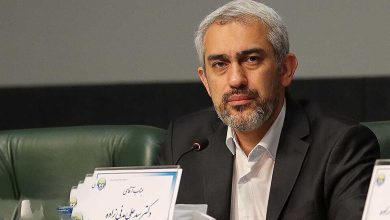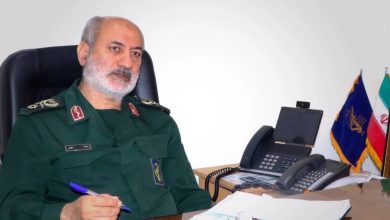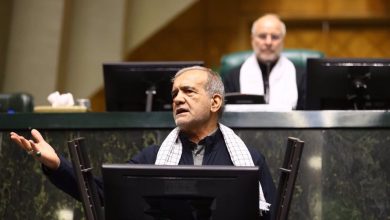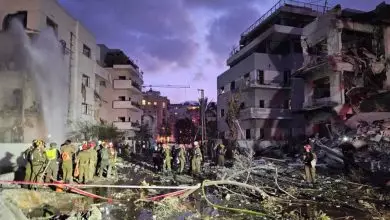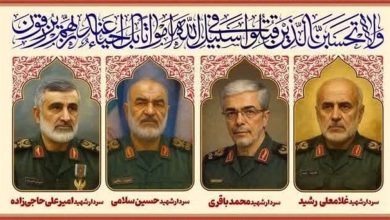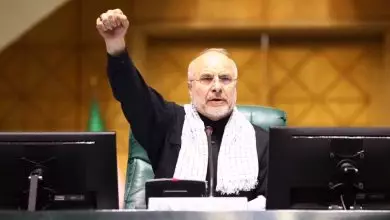Iran has called upon the Syrian government to take decisive measures in response to the widespread killing of civilians
Iran's envoy to the United Nations has urged the Hay’at Tahrir al-Sham (HTS) government in Syria to implement "firm measures" to address the widespread civilian casualties amid the ongoing conflict.
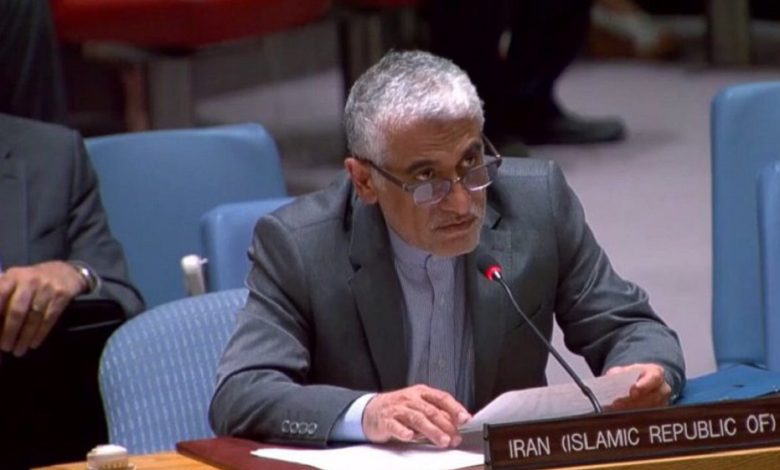
During a UN Security Council session on the Syrian conflict held on Tuesday, Amir Saeid Iravani vehemently denounced the extensive violence occurring in the Syrian provinces of Latakia and Tartus. He highlighted the significant toll on civilian lives, with the Alawite religious minority being notably affected by the ongoing hostilities.
He emphasized the urgency for the interim government to take immediate and decisive measures to cease all violence, safeguard civilians, and guarantee unimpeded humanitarian access.
Authorities must ensure that the rights of all communities are upheld and safeguarded. Efforts to forcibly remove minorities, particularly Alawites and Shias, must be halted without delay.
He emphasized the critical importance of addressing terrorism in Syria, indicating that international terrorists must be returned to their home countries, face justice, and be stopped from further destabilizing the area.
On December 8, 2024, Hayat Tahrir al-Sham (HTS), a militant group reportedly receiving foreign support, declared the collapse of President Bashar al-Assad’s government after a swift two-week offensive.
Earlier this month, the northwestern coastal region of the country witnessed horrific violence as Hayat Tahrir al-Sham (HTS) militants and armed opposition factions engaged in brutal massacres.
In the 100 days following the removal of the Assad government, over 4,711 civilians have reportedly been killed, as per the Syrian Observatory for Human Rights (SOHR). The reports indicate that at least 1,805 of these deaths were due to field executions and targeted killings based on sectarian identity and connections to the previous regime.
During the same timeframe, Israel has intensified its lethal airstrikes on Syria and has extended its occupation of the Arab nation beyond the Golan Heights.
The Iranian ambassador expressed significant apprehension regarding Israel’s persistent breaches of Syrian sovereignty and territorial integrity. He stated that the regime’s air strikes contravene international law and further destabilize the region.
He additionally urged the removal of what he termed unlawful sanctions imposed by the United States and the European Union on Syria, advocating for these measures to be lifted to aid the nation’s rebuilding efforts and to secure the safe repatriation of refugees.
Iravani emphasized that the Syrian people should have the sole authority to determine the future of their nation, without any outside interference or imposition.
According to statements made, Tehran backs the formation of an inclusive government in Syria, advocating for its realization through free elections and an extensive national dialogue.
He further stated that Iran underscores the importance of a political process in Syria that is both led and owned by Syrians themselves. This process, he elaborated, should be facilitated by the United Nations and rooted in the principles outlined in UN Security Council Resolution 2254, passed in 2015.
The envoy reaffirmed Iran’s dedication to upholding Syria’s sovereignty and territorial integrity, emphasizing Tehran’s intention to play a constructive role in securing enduring peace within Syria and across the broader region.
In a critical statement, Iravani condemned the United States for allegedly infringing upon Syria’s sovereignty, enforcing sanctions against the nation, and backing Israeli acts of aggression within the region.
He stated that the United States, allegedly operating under the guise of counterterrorism, has consistently contravened Syria’s sovereignty and territorial integrity. This, he claimed, has facilitated the activities of terrorist factions while supporting Israel’s occupation efforts, all to further its strategic geopolitical goals.
It is important to acknowledge that the ongoing humanitarian crisis and economic difficulties in Syria are largely attributed to the sanctions imposed by Washington, which have been deemed unlawful. These measures are seen as contributing to systematic violations of fundamental human rights for the people of Syria.


